WISE: Connect 2021
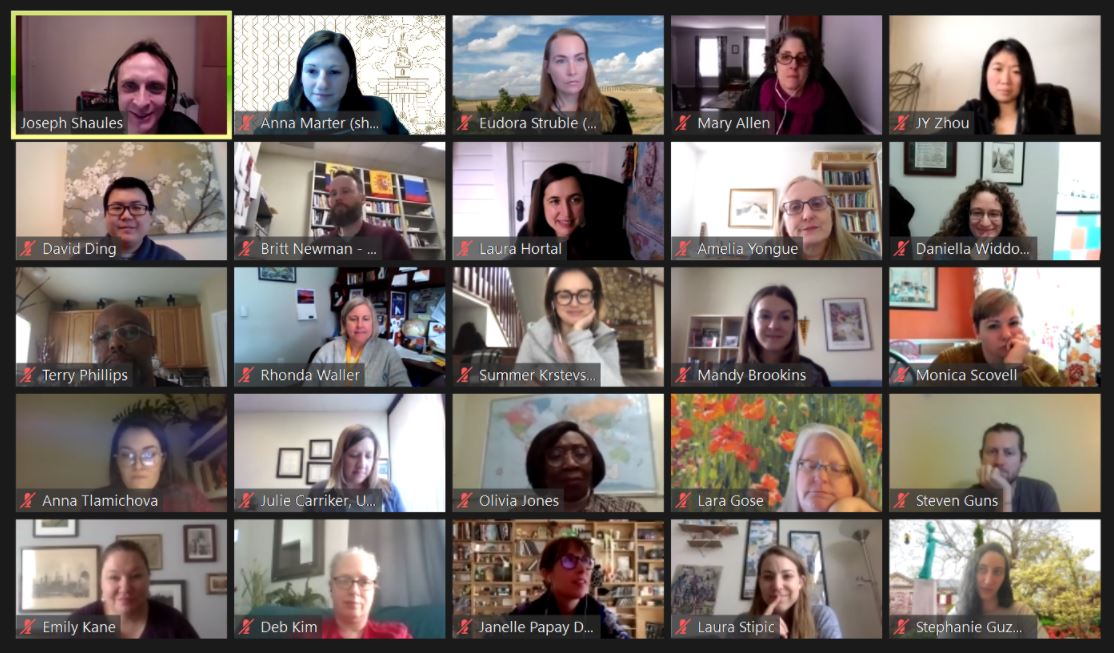
Schedule & Information
As our first foray into the world of virtual learning, WISE: Connect 2021 was a great success with more than 750 educators from 40 U.S. States/Territories and 29 countries registered. Workshops and the Symposium were free and open to all colleagues.
Information from Wise: Connect 2021
WISE is committed to equal opportunity and providing a platform for diverse perspectives. We welcome participation from people of all genders, sexual orientations, racial and ethnic backgrounds, and abilities, as well as from a variety of institutions (public, private, HBCU, community college, etc.) and organizations, who are interested in bolstering the conversation on intercultural learning surrounding study abroad, on-campus programming, and the international student experience.
Each workshop will be three-and-a-half hours TOTAL, divided into two 1.75-hour segments: Part One on Wednesday, February 10, and Part Two on Thursday, February 11. Participants are expected to attend on both Wednesday and Thursday.
8:45 am – 10:30 am | Wednesday & Thursday, February 10-11
Mining a Global Learning Ecosystem to Support Intercultural Development
The goal of this workshop is to equip the participants with frameworks for the design and implementation of international experiences in higher education. The primary topics that will be addressed are the Global Learning Ecosystem (Gobbo & Hoff, 2020), which is a conceptual framework for the internationalization of higher education, and the examination of how the Global Learning Ecosystem—especially the Mobility Programs facet—informs the design of international experiences. This also includes an introduction to the Global Citizenship 1-2-3 model (Byker, Putman, & Medina, 2020; Putman & Byker, 2020), which is a three-step approach to educate undergraduate students in order to (1) learn, (2) think, (3) act in globally responsible ways. The participants will examine and discuss how the frameworks are adaptable to the design of international virtual experiences during this time of the COVID-19 pandemic. Participants will have the opportunity to use these frameworks as lenses for examining their own programs. This workshop is targeted to faculty and staff with experience leading and designing international programs.
Facilitators: Erik Jon Byker, Adriana L. Medina, S. Michael Putman, Joseph Hoff
Place-Based & Experiential Learning: Pedagogies of Place
How can we use places and spaces as laboratories or settings to develop critical thinking skills in our students? In this interactive workshop, we engage place-based learning as a complement to classroom work, providing fresh perspectives and heightened engagement to deepen the learning experience. Facilitators will present a typology of places and example activities, consider the ethics of experiential engagement, and plan for issues that may arise when taking learning beyond the classroom. Participants will be asked to complete a self-guided “field study” between days 1 and 2 of the workshop to engage in a personal exploration of place-based learning. Following a debrief, we will offer specific recommendations to rethink teaching and learning while maximizing global engagement through a critical awareness of place. This workshop is appropriate for faculty and staff involved in designing and leading intercultural programs and individuals interested and engaged in place-based learning.
Facilitators: Tina Mangieri and Anders Larsen
Reimagining Mentored Undergraduate Research in Global Contexts for Depth and Breadth
Although extensive research has examined students’ learning in international education, there has been less focus on integrating undergraduate research (UR) with global learning. This workshop will focus on two topics that emerged as highly salient in a recent think tank: 1) increased access to mentored, globally-focused UR for minoritized students, including students of color, women in STEM, international, first-generation, and students from lower resourced backgrounds (breadth) and 2) augmented intercultural learning outcomes for students engaged in mentored UR in global contexts (depth). After participating in this workshop, attendees will be able to identify current gaps in global UR programs, discuss best practices of mentoring, and evaluate strategies and generate ideas for enhancing the depth and breadth of global UR programs. Attendees will gain examples of global UR solutions, resources for intercultural learning and mentorship skill-building, and a plan for augmenting the depth (quality of learning, especially intercultural competence development) and breadth (scalability and accessibility) of virtual global UR at their institution. This workshop is appropriate for professionals at all levels of expertise.
Facilitators: Kris Acheson-Clair, Maureen Vandermaas-Peeler, Dawn Michele Whitehead
10:45 am – 12:30 pm | Wednesday & Thursday, February 10-11
Bias and Deep Cultural Learning: How Brain/Mind Sciences Can Inform Intercultural Education and Training
This workshop will explore how intercultural education can go beyond superficial notions of intercultural understanding and encourage deep culture learning. Drawing on emerging insights from brain/mind sciences, the argument will be shared that ethnocentrism and bias are “built in” to the architecture of our minds and that deep culture learning requires a recognition of the limitations of our own perceptions. A developmental learning model will be introduced to help participants better understand their own minds, explore ways in which our perceptions are shaped by culture, become aware of psychological resistance to foreign experiences, and identify patterns of deep culture. The model demonstrates how to avoid shallow approaches to intercultural understanding and go beyond superficial cultural generalizations. In addition to the learning model, participants will receive sample activities, a resource list, and a copy of the facilitator’s book, Language, Culture and the Embodied Mind. This workshop is appropriate for educators focused on intercultural teaching and training, study abroad professionals, and individuals interested in fostering deeper forms of intercultural understanding.
Facilitator: Joseph Shaules
Listen Up Y’all: The Intersection of Critical Reflection and Intercultural Listening for Social Change
Drawing attention to the need for embracing and employing critical self-reflection practices while listening across cultures is the focus of this workshop. Critical self-reflection is informed by critical race theory (CRT), which signals the need to give voice to the experiences of those who are marginalized and oppressed (Delgado & Stefancic, 2017). Fook and Askeland (2007) suggest that critical self-reflection is the process of exposing and challenging our inherent biases to increase anti-oppressive communication and behavior with others. Workshop facilitators suggest this is an important step towards creating social change. Listening is a crucial component of communication, yet application of critical self-reflection to the listening process is often ignored. We seek to address this gap by highlighting the intersection of critical self-reflection, listening across cultures, and social change. Should we remain committed to the transformative ideals of international education, we must consider ways for it to advance social change at home. This workshop is appropriate for professionals at the initial stages of planning international education experiences and for individuals who want to learn more about centering listening skills in intercultural communication and competence.
Facilitators: Monique Constance-Huggins, Rowie Kirby-Straker, Mu-Tzu Wu
Strategies for International Educators to Explore Power and Privilege Through Intercultural Learning
Developing student intercultural competence may actually mean less time focusing on national frameworks and more time growing cultural competence through addressing asymmetrical power relations, intersectionality, and equity in the context of individual, diverse student experiences at home and abroad. This workshop will explore the importance of approaching intercultural experiences through a DEI lens in order to both encourage intercultural competence for students, and to create reciprocal, mutually-adaptive, and beneficial relationships between students and their study communities. Given current social movements coinciding with students navigating these issues in unfamiliar cultural, and often virtual, contexts, it is imperative for intercultural competence development to be paired with an analysis of power, privilege, and multiculturalism. This workshop is appropriate for professionals interested in advancing their personal intercultural awareness, faculty and administrators designing or leading inbound/outbound programs, and community partners involved in guiding experiential learning in diverse cultural settings.
Facilitators: Annie Gibson and Kristy Magner
Workshop Facilitators
(listed alphabetically)
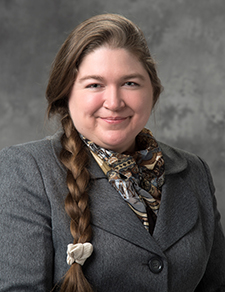
Kris Acheson-Clair, PhD, directs Purdue University’s Center for Intercultural Learning, Mentorship, Assessment, and Research (CILMAR), whose staff works with the university’s faculty and staff to embed intercultural learning across the curriculum and produce cutting-edge research on intercultural competence development. Kris is a well-published scholar and an in-demand trainer and speaker on teaching and learning best practices. Last summer and fall, she led Purdue’s efforts to scale up global research projects via virtual platforms, creating a new mentorship model that pairs disciplinary and intercultural mentors with research teams and implementing a university-wide assessment plan for the program. She is formerly Georgia State University faculty and Fulbright Scholar to Honduras. (Photo credit: Purdue University/ Mark Simons)
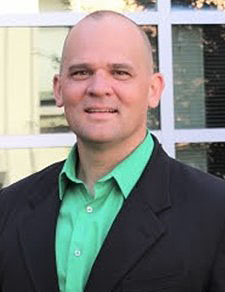
Erik Jon Byker, PhD, is an Associate Professor in the Cato College of Education at University of North Carolina at Charlotte. During the 2019-2020 academic year, he was UNC Charlotte’s Resident Director of International Studies at Kingston University in London. Erik received his PhD in the Curriculum, Teaching, and Educational Policy Program from Michigan State University. His fields of specialization include curriculum foundations, educational technology, global education, and social studies. He leads study abroad programs to England and to South Africa. Erik has conducted comparative and international field research in Cuba, England, Germany, India, South Africa, South Korea, and across the United States. From that research, he has developed conceptual frameworks for global education, including Critical Cosmopolitan Theory and Global Telephony Theory, as well as the framework for Critical Water Literacy. Erik was a 2017-2018 Global Teacher Education Fellow and currently serves as a mentor in the Global Teacher Education Fellowship. He also serves as a HundrED Ambassador and as the President of the MU Chapter of Phi Beta Delta at UNC Charlotte.
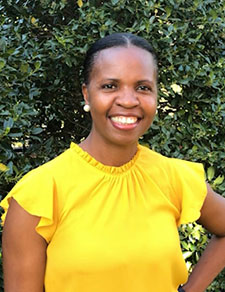
Monique Constance-Huggins, PhD, is an Associate Professor and Undergraduate Program Director in the Department of Social Work at Winthrop University. She received her PhD, MSW, and MPIA from the University of Pittsburgh. Her research includes race and racial disparities; social capital among low-income women and families in rural contexts. She also engages in community needs assessment. Her research brings together empirical studies, theory, and social policy. Dr. Constance-Huggins teaches courses in research methods, social welfare policy, and macro systems.
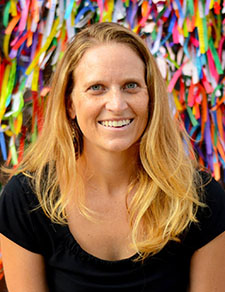
Annie Gibson, PhD, is the Director of Study Abroad and Administrative Associate Professor at the Center for Global Education at Tulane University. She works to ensure that the entire study abroad process aligns with best practices for creating an equitable and inclusive study abroad experience and then helps students translate their global experiences to their local context. Annie is committed to promoting intercultural learning campus-wide and collaborating with colleagues on intercultural initiatives, including the Tulane IDI Qualified Administrators Group. She has taught a wide range of courses in Latin American Studies, Spanish, Portuguese, and Intercultural Learning, including an online intercultural learning “Pre, During, and Post” study abroad course each semester. She has led programs abroad in Brazil, Cuba, Costa Rica, Mexico, Argentina, the Dominican Republic, Senegal, Spain, Denmark, and Sweden. Annie is published widely, including two books: Post-Katrina Brazucas: Brazilians in New Orleans (UNO Press: 2012) and Hispanic and Latino New Orleans: Immigration and Identity Since the 18th Century (co-authored, LSU Press: 2015). The latter won the 2015 J.B. Jackson Book Prize for contribution of the year to the historical and ethnic geography of the United States (Association of American Geographers).
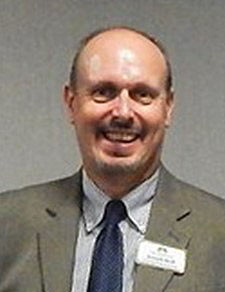
Joseph Hoff, PhD, is Director of the Global Education and Engagement Office within the Office of International Programs at University of North Carolina at Charlotte. He has a PhD from the University of Minnesota’s Comparative and International Development Education Program, an MA in International Administration from the School for International Training, and an MA in Spanish from Saint Louis University. Joseph currently teaches and coordinates globally-focused academic and co-curricular programming at UNC Charlotte that provides the campus community opportunities to engage with other cultures and develop global competency skills.
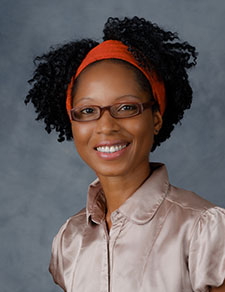
Rowie Kirby-Straker, PhD, is an Assistant Teaching Professor in the Department of Communication at Wake Forest University, where she teaches public speaking, listening, and environmental communication. A past WFU Academic and Community Engaged (ACE) fellow, she continues to work with the Office of Civic and Community Engagement at Wake Forest to create opportunities for her students to engage with local communities in cross-cultural settings, mainly through storytelling, listening, and public speaking. Rowie also co-leads a study abroad short course in St. Vincent and the Grenadines, where she worked for more than a decade as an environmental communication practitioner. Her research and creative interests relate to speaking and listening competence, environmental risk communication, and environmental justice.
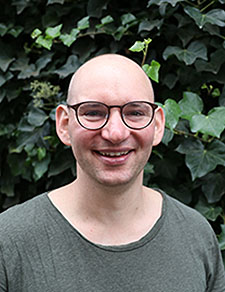
Anders Larsen, Cand.Mag., is an Academic Consultant and full-time faculty member in European Humanities at DIS, based in Copenhagen. He teaches Meaning of Style; History of Copenhagen: Structure, Plan, Design; Tasting Culture and Anthropology of Food. He has previously taught Visual Culture of Cities and London: Reading the City. Anders works on various projects for DIS relating to cultural competencies and cultural engagement, including leading staff trainings for various DIS departments. His research has focused on cultural history and visual culture. Anders holds a degree in History and English Literature and Language from the University of Copenhagen, and has been with DIS since 2007.
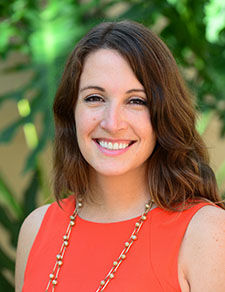
Kristy Magner served as the Director of the Office International Students and Scholars at Tulane University for seven years and has worked in the field of international education since 2000. Amplifying the voices of international students and scholars and advocating for their needs and interests is central to her work. She attended the Summer Institute for Intercultural Communication on two occasions, receiving training in Facilitating Intercultural Discovery, Foundations of Intercultural Communication, Training Design for Intercultural Learning, and Training Methods for Exploring Values. Kristy has been involved in NAFSA leadership at the state, regional, and national level, and has also presented at state and regional NAFSA conferences. Both at work and in her personal life, Kristy is inspired by building opportunities for coming together across difference to create meaningful societal change. She serves on the board of Grow Dat Youth Farm, a non-profit focused on nurturing a diverse group of young leaders through the meaningful work of growing food. Grow Dat’s values and operational guidelines are rooted in the VISIONS framework, which provides a change-oriented approach to diversity and inclusion work.
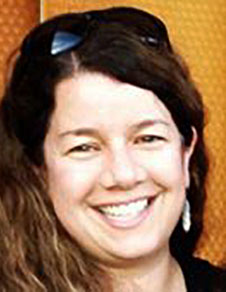
Tina Mangieri, PhD, is a geographer, anthropologist, and experiential educator. In addition to her role as DIS Associate Academic Director, she is Director of Research and a faculty member for DIS Stockholm. Her work focuses on migration, transnationalism, and cities. She holds a PhD in geography from University of North Carolina at Chapel Hill. Tina has held multiple international academic positions including: Fulbright Scholar in Kenya; Instructor, Stockholm University; Cartographer for the Royal Ontario Museum’s Yemen Project; Academic Director, Associate Academic Dean, and Academic Dean for Africa with SIT Study Abroad; and Director of Experiential Education for NYU Abu Dhabi. Additionally, she served as Principal Investigator with International Archaeological Research Institute in Honolulu, Assistant Professor of Geography at Texas A&M University, Assistant Professor at Champlain College, and Dean for Global Education at Bates College.
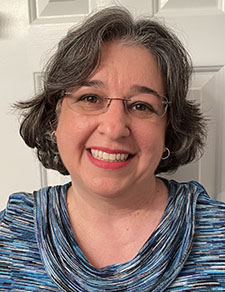
Adriana L. Medina, PhD, is an associate professor of Reading Education in the Cato College of Education’s Reading and Elementary Education Department at the University of North Carolina at Charlotte. For almost 10 years she led the Teacher Education in Germany Study Abroad Program and has been collaborating with German colleagues and conducting cross-cultural, international research. She serves as Chair of her College’s Internationalization Committee and collaborated with her colleagues to create an Applied Understanding in Global Education minor in her department. Adriana has been learning German in an effort to better understand the culture and language so as to assist her students while traveling abroad, to remind herself how it feels to be a learner, and as a sign of respect toward her German colleagues. Her research interests include global education, students who struggle with literacy, teacher education, and educational program evaluation. She has contributed to several textbooks and articles with regards to her areas of interest. Her current research projects are focusing on teacher efficacy with vulnerable populations, guiding young readers to literacy, the effects of pre-service teachers’ experiences on their teaching of English language learners, literature and global education, and how to study a foreign language.
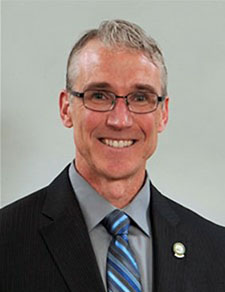
S. Michael Putman, PhD, is a Professor and the Department Chair in the Department of Reading and Elementary Education at the University of North Carolina at Charlotte. Michael has a passion for helping students have international experiences and has developed and led study abroad experiences to Stellenbosch, South Africa and Santander, Spain. His research is focused on teacher self-efficacy; the development of teacher education candidates’ knowledge and beliefs through immersive clinical experiences, including those in international contexts; and the impact of affective variables and self-regulatory processes within online inquiry. Michael’s scholarly record encompasses more than 50 professional publications and includes peer-reviewed articles in many notable outlets, including Reading Psychology, Action in Teacher Education, Urban Education, and Journal of Studies in International Education. His service reflects leadership positions in several prominent educational organizations, including the Association of Literacy Educators and Researchers, the Association of American Colleges of Teacher Education (AACTE), and Kappa Delta Pi. Notably, he recently concluded terms as the chairperson of AACTE’s Committee on Global Diversity and as a co-editor of Literacy Research and Instruction. Michael serves as a discipline review committee member for the U.S. Fulbright Scholar Program.
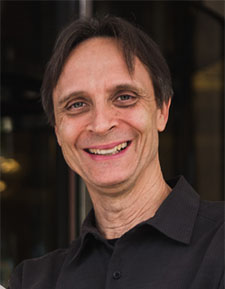
Joseph Shaules, PhD, has worked in intercultural education in Japan, Mexico, and Europe for more than 25 years. He is a Specially Appointed Professor at Keio University’s Center for Global Interdisciplinary Courses in Tokyo. He is the director of the Japan Intercultural Institute and teaches in the Tsuda University Graduate Program in TESOL. Joseph has published multiple books, including Language, Culture and The Embodied Mind (Springer), The Intercultural Mind (Intercultural Press), and Deep Culture (Multilingual Matters), as well as textbooks such as Identity (Oxford University Press) and Impact Issues (Pearson Education). He hosts The Deep Culture Podcast, sponsored by the Japan Intercultural Institute. Joseph is proficient in English, Japanese, French, and Spanish, and he currently lives in Tokyo.
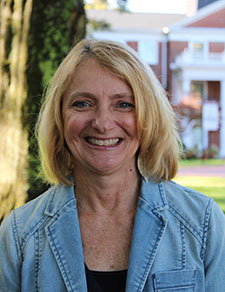
Maureen Vandermaas-Peeler, PhD, is a professor of psychology and the Founding Director of the Center for Research on Global Engagement (CRGE) at Elon University. A developmental psychologist, Maureen studies sociocultural and global contexts of learning. As Director of CRGE, she facilitates collaborative scholarship on global engagement on campus as well as nationally and internationally. One research stream focuses on the role of mentors in supporting high-impact educational experiences such as undergraduate research and study away. In her work as a teacher-scholar-mentor at Elon for the past 25 years, Maureen has taught and mentored students in local and global contexts and was recognized with Elon’s Ward Family Excellence in Mentoring Award in 2011 and the 2018 Distinguished Scholar Award.
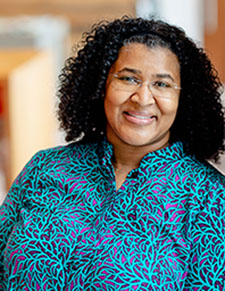
Dawn Michele Whitehead, PhD, is the Vice President of the Office of Global Citizenship for Campus, Community, and Careers at the Association of American Colleges and Universities (AAC&U). Her work focuses on advancing practices and strategies to integrate global and experiential learning into institutional initiatives, and she works closely with institutions to embed high impact practices, with an emphasis on quality and equitable participation. Dawn has written and presented nationally and internationally on global learning, civic engagement, community based global learning, curricular change, global health, and integrative learning. Prior to her work at AAC&U, she served as the Director for Curriculum Internationalization, as a faculty director for community-based global learning programs, and taught Global and International Studies courses at Indiana University-Purdue University-Indianapolis.
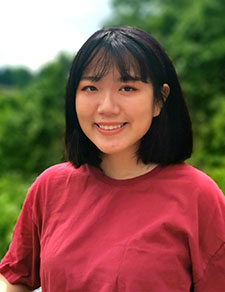
Mu-Tzu Wu is a first-year master’s student in the Department of Communication at Wake Forest University. She received her bachelor’s degree from the University of Minnesota, Twin Cities. Her research interests include international and intercultural communication, as well as the communication-related questions being asked by marginalized voices in the United States, particularly by those coming from an intersection of identities. At her undergraduate institution, Mu-Tzu worked as an ambassador at the Multicultural Center for Academic Excellence. For her capstone project, she created a podcast with two peers interviewing first generation women of color college students.
11:30am – 12:45pm | Friday, February 12
Connecting the Dots: Exploring the Intersections of Intercultural Learning, Diversity, Equity and Inclusion, and Social Justice
featuring Tara Harvey, PhD, and Terrence Harewood, PhD
Many assumptions, misconceptions, and questions exist about what intercultural learning is and isn’t, as well as how it intersects (or doesn’t) with social justice, and diversity, equity, and inclusion work. The WISE: Connect Symposium will explore the relationships between these areas, and consider how we can all take a more inclusive, equitable approach to intercultural learning. The speakers will introduce participants to a framework they use in their own work, which they believe addresses many of these issues.
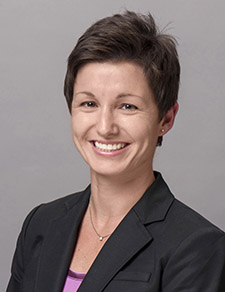
Tara Harvey, PhD, founder of True North Intercultural LLC, combines her broad experience in international education (language learning, international student services, and study abroad) with deep understanding of intercultural teaching and learning to help faculty and staff better navigate cultural differences and facilitate intercultural learning (abroad and at home).
Tara has taught intercultural courses at the University of Minnesota-Twin Cities and the Middlebury Institute of International Studies at Monterey, and was Associate Faculty at the Summer Institute for Intercultural Communication (SIIC). As Academic Director of Intercultural Learning for CIEE (Council on International Educational Exchange), she developed the signature course, Intercultural Communication & Leadership, now taught at study centers around the world, and trained resident staff in how to effectively and appropriately facilitate intercultural learning.
Tara is an experienced Qualified Administrator of the IDI and a Senior Facilitator of the Personal Leadership methodology. She holds a Ph.D. in Comparative and International Development Education from the University of Minnesota-Twin Cities.
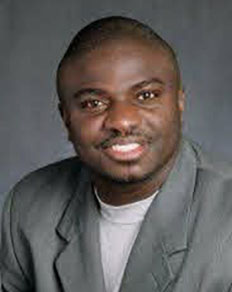
Terrence Harewood, PhD, currently teaches undergraduate courses in multicultural education and social foundations at University of Indianapolis, where he is primarily assigned to teach undergraduate, master’s level, and principal preparation candidates. His primary role is in the preparation of interculturally competent preservice teachers and school leaders. In addition, he serves as a site team leader on external audits of various Mayor of Indianapolis Charter Schools, where he brings a cultural competency focus to the Charter School audits.
Terrence is the recipient of the coveted University of Indianapolis 2011 Teacher of the Year Award. More recently, he was awarded the prestigious 2018 IDI Intercultural Competence Award, for outstanding contributions to student and educator intercultural competence.
An IDI Qualified Administrator since 2006, Terrence has used the IDI to benchmark and measure the intercultural development growth for his courses during the past 13 years. He has also used the IDI in conducting extensive research in his classes and in assessing the impact of short-term study abroad courses on his campus. His primary research interest examines a link between teachers’ intercultural competence and the rates by which they refer minority students for discipline.
Terrence, a native of Barbados, West Indies, has also conducted extensive professional development using the IDI-Guided Development framework with many educational institutions and districts, ranging from K-12, higher education, and Charter Schools.
Registration to participate in WISE: Connect 2021 will close on Thursday, February 4 at 11:59 pm.
WISE: Connect 2021 is free of charge due to the generosity of workshop facilitators sharing their expertise and no expenses related to physical facilities. Additionally, we are aware that professional development budgets have been greatly reduced or cut for many in higher education around the country and the world. WISE: Connect 2021 will be time of collegial collaboration, conversation, and connection without the obstacle of cost.
Frequently Asked Questions
Why is WISE Conference transitioning to an online format?
Anticipating continued restrictions (public health, budget, travel) next spring due to the COVID-19 pandemic, the WISE Steering Committee and Wake Forest University will offer WISE: Connect 2021, a reimagined, virtual professional development event in lieu of our traditional in-person conference.
WISE: Connect 2021 will build on our reputation for fostering connections between international education professionals from various institutions and organizations, and offer a limited number of content- and conversation-rich workshops on aspects of intercultural learning.
Is this a permanent move for subsequent years?
It is our intent to make the shift for 2021 only.
When will it take place?
WISE: Connect 2021 will be held Wednesday, February 10 through Friday, February 12, 2021. The schedule of offerings if shown above, with workshop and symposium details on the corresponding tabs.
What will the virtual event look like?
Being mindful of time zones and Zoom fatigue, WISE: Connect 2021 will present six virtual workshops. Each will be three-and-a-half hours total divided into two 1.75-hour segments, part one on February 10 and part two on February 11. Participants are expected to attend on both Wednesday and Thursday.
In addition to the Workshops, WISE: Connect 2021 will host a symposium on Friday, February 12. Tara Harvey and Terrence Harewood will discuss “Connecting the Dots: Exploring the Intersections of Intercultural Learning, DEI, and Social Justice” from 11:30am – 12:45pm.
Is there a fee to participate?
WISE: Connect 2021 will be free of charge due to the generosity of workshop facilitators sharing their expertise and no expenses related to physical facilities. Additionally, we are aware that professional development budgets have been greatly reduced or cut for many in higher education around the country and the world. WISE: Connect 2021 will be time of collegial collaboration, conversation, and connection without the obstacle of cost.
How many people will each Workshop hold?
The number of participants in each workshop will vary based on the individual facilitators and the nature of the topic.
What do I receive as part of my participation?
- WISE: Connect 2021 Workshop
- Notes & resources shared by workshop facilitator
- Contact list of fellow participants to continue collegial conversations off-line
- Access to symposium and professional engagement events (to be added)
May I register for more than one Workshop?
Registration is limited to one workshop per person.
May I register to attend only the symposium?
Yes. Proceed through the registration process without selecting a workshop.
Will the workshops and symposium be recorded?
The workshops will not be recorded as content is proprietary for each facilitator; however, each facilitator will share a variety of resources with attendees.
Plans for the symposium speaker(s) are being explored. Once this is finalized, we will share more information on the website.
How do I submit a session proposal?
As part of reimagining WISE for a virtual platform, we are shifting from traditional sessions to in-depth workshops for WISE: Connect 2021. Rather than a Call for Session Proposals, we have initiated a Call for Facilitators as we seek leaders in the field who are skilled at engaging participants on a variety of levels with in-depth exploration into a specific topic.
We anticipate opening a call for session proposals in summer 2021 for WISE Conference 2022.
How do I apply to be a Facilitator?
The window to submit a session proposal closed as of Thursday, October 1, 2020.
When will registration open for attendees?
December 3, 2020
Will there be registration grants offered this year?
No, due to our decision not to charge a registration fee, WISE: Connect 2021 will be accessible to anyone interested in participating.
Deadline for submission: now closed
WISE: Connect 2021 is seeking facilitators for in-depth workshops focused on “Reimagining Intercultural Learning” through topics relevant to the pressures facing higher education today. Facilitators with knowledge of international/intercultural education, interest in collegial exchange, demonstrated experience leading workshops, and familiarity teaching in the virtual environment are encouraged to submit workshop proposals.
WISE is committed to equal opportunity and providing a platform for diverse perspectives. The Steering Committee welcomes proposals from people of all genders, sexual orientations, racial and ethnic backgrounds, and abilities, as well as from a variety of institutions, including minority-serving institutions and community colleges.
2021 Call for Facilitators Submission Form
Goals of 2021 Virtual Workshops
- Facilitate an engaging topic relevant to intercultural learning/training, supported by research in the field and/or professional experience
- Encourage discussion among participants by facilitating an interactive learning environment that incorporates supplemental learning strategies
- Provide concrete “takeaways” for faculty and professional staff to utilize in their work
Structure of 2021 Virtual Workshops
- Three hours in length divided between two days (February 10 & 11), thus accommodating multiple time zones and allowing facilitators to incorporate creative strategies within the virtual space.
- Supplemental learning strategies for the virtual space may include breakout rooms, polls, assigned readings in advance, time for reflection, homework, etc.
- Once facilitators are selected, members of the WISE Planning Team will work with each individually to determine specific times, details, and capacity.
- All workshops will be held via Zoom.
- The WISE Planning Team will provide support for Connect 2021 workshops through:
- Logistical planning
- Marketing & Communications
- Technical support/expertise — a Wake Forest University staff member will be present during each workshop. The role of the staff member will be to oversee the technical aspects of the workshop and assist facilitators.
NOTE: WISE is a professional development opportunity for international educators, and is noncommercial. Workshops should not be used for direct promotion of a speaker’s product, service, or other self-interest.
We look forward to receiving your virtual workshop proposal for WISE: Connect 2021!
Deadline for submission: Thursday, October 1, 2020
2021 Call for Facilitators Submission Form
Contact wiseconference@wfu.edu with questions.
As we continue to work remotely, the best way to reach us is via email at wiseconference@wfu.edu
GPS Receptionist 336.758.5938 (limited hours)
Our mailing address is:
WISE Conference
c/o Center for Global Programs & Studies
Wake Forest University
P.O. Box 7385
Winston-Salem, NC 27109-7385

